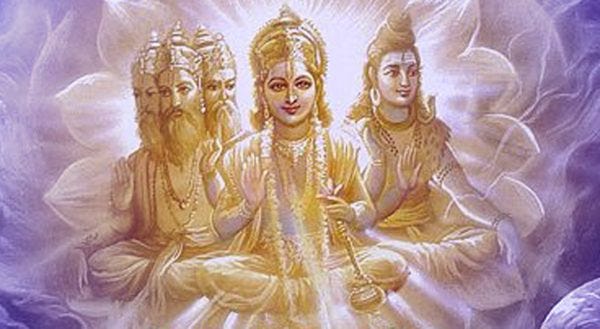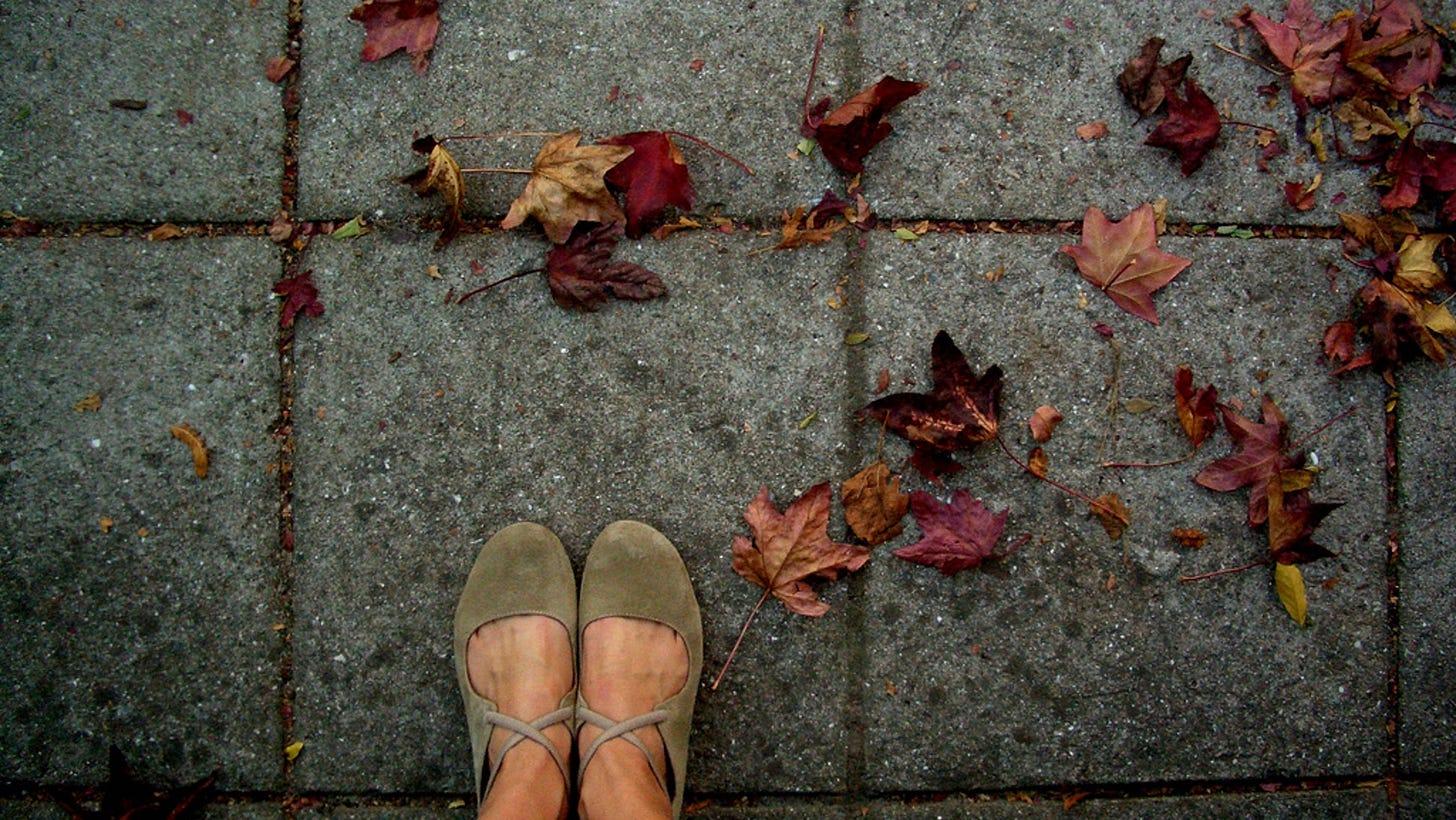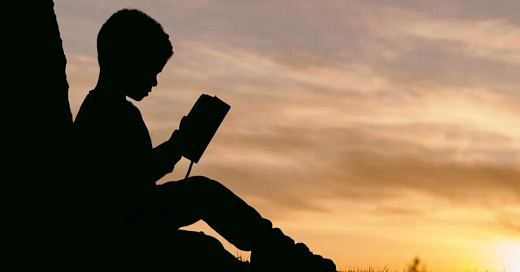LIFE IN THE IN-BETWEEN
My eleven year-old nephew Charlie has started writing his own newsletters though they’re decidedly more bleak and straight-shooting than mine.
An early version said “SCROLL DOWN FOR ADVICE” which I - ever on the lookout for guidance - did. On the next page was a sad face emoji ☹️ with the caption “Sometimes Life Sucks” followed by a gleefully sinister “Hahahaha.”
That was it. The whole post.
Hard to argue with his main point though. Sometimes life does indeed suck. (Look no further than 'right now' for an example.) And yet when life's suckiness announces itself - as it will and does with great regularity - I continue to be shocked, as if some sort of universal contract had been broken. I wonder where I got this idea that life should be frictionless and dependable. I suppose it makes sense given that much of human history is an attempt at exerting deeper levels of control over nature, to fashion that which is fundamentally unpredictable into some sort of controllable shape. And on an individual level, there's the sense (a myth, actually) that if I go to the right schools, get the right job and salary, marry the right person, live in the right house or neighborhood that some of the inherent chaos of life can be kept at bay.
Ashley C. Ford had a fantastic tweet recently: “You are watching people go through withdrawal from the emotional addiction to the myth of certainty.” That's it, right there. So many of us depended, whether we knew it or not, on things being 'a certain way.' And very quickly - head-spinningly fast - everything changed. So we're now, to varying degrees, dealing with the fallout from that annihilation of certainty.
The man who taught me to meditate used to say that the greatest deficiency in human beings is a lack of what he called ‘adaptation energy.’ We simply don’t have the ability or energy to pivot and course-correct when expectations are upended and routines are disrupted. Surely a global pandemic killing untold numbers of people, grinding the economy to a halt, and keeping us inside our homes for who knows how long wasn’t anything any of us (except maybe epidemiologists) had penciled into our 2020 schedules.
But it’s here. Here we are.
How are we to move forward?

Richard Rohr has a beautiful and simple definition of suffering. He defines it as "whenever we are not in control." He goes on to say that "some form of suffering is absolutely necessary to teach us how to live beyond the illusion of control and to give that control back to… the flow of reality.”
I love that term: the flow of reality. There is a flow, a current, and at the moment it's a rather strong one. And it's not heading anywhere we were expecting or wanting it to. At times like this I think about the metaphor of the undertow. They say the surest way to drown in a riptide is to fight it. The way to survive is to let it take you, and it will pop you right back up.
****
I learned something years ago that I go back to all the time, especially in times of deep uncertainty. According to the Vedas, the ancient holy scriptures of India, there are three operating principals at work in nature at all times:
1. Creation (embodied by the deity Brahma)
2. Preservation (embodied by the deity Vishnu)
3. Destruction (embodied by the deity Shiva)
Brahma (creation) is the force of progressive change, Vishnu (preservation) nurtures and protects that which is relevant, while Shiva (destruction) attacks and removes that which is irrelevant and unnecessary. Brahma or Creation is meant to be primary, in first position, the driving force in our lives, Vishnu or Preservation in the second position, and Shiva or Destruction in third. (Note the Trinity. In almost all cultures ‘three’ seems to be a holy number.)
But here’s the thing: When we take our foot off the creation accelerator and begin to coast, when our lives become more about preservation and maintenance than creative risk, we knock Brahma/Creation off its perch and elevate Vishnu/Preservation into the primary position. Thus we create conditions ripe for Shiva The Destroyer to swoop in and shake things up.
Shiva is not a devil or a demon. When in its proper place, Shiva represents a natural process, not unlike healthy digestion in the body. Irrelevancies get cleared away without us having to give it much thought. When things get bumpy and dramatic in our lives, it’s a sign that Shiva has been awakened. It’s not that we drew a bad card or are an unlucky person. We’ve just gone on auto-pilot. We went to sleep. And life wants us awake! A disruption tells us something new is coming, the old is being swept aside. The universe is not punishing us, it’s actually offering a loving if stern reminder to put Brahma back in the primary position, to step out of our comfort zone and back on the path of risk, creation, and newness.
How weird and brilliant is it that the universe is designed to make us brave?

People are taking to the streets and demanding the country be opened back up, that we get ‘back to normal.’ But what is normal anymore? And it must be asked: Was the normal we’re pining for all that great? Once something changes it seems the mind has a tendency to nostalgize (newly coined word!) the past, no matter how challenging or unfruitful it may have been. It reminds me of a quote I love from the playwright Richard Greenberg: “Nostalgia is simply a longing for a time we know we can survive.”
I think one of the myriad reasons this moment is so unsettling is because we know intuitively that the old world is dying yet we’ve no idea what our new world will look like when we emerge from our bunkers. We’ve all probably had individual variations on this theme but never in our lifetimes has it been such a collective process.
I watched two documentaries recently and it was only halfway through the second that I realized they were essentially cousins. The first was “Shut Up And Play The Hits” about the band LCD Soundsystem’s farewell concert at Madison Square Garden and the lead singer James Murphy’s subsequent moments of relief and regret. The second was the Martin Scorsese classic “The Last Waltz” about The Band’s own farewell concert (featuring a very starry supporting cast including Joni Mitchell, Van Morrison, Neil Diamond, Muddy Waters, and Bob Dylan.)
I don’t know why it struck me so hard when I realized both movies were basically about old worlds crumbling and the dread vs. excitement about what’s to come. It’s a terrifying moment when you know something that has provided untold amounts of stability and nourishment in your life is over. But you get and grudgingly accept that it’s done, that it’s time for something new. The terrifying part is that liminal space after the death but before the rebirth, the famed “dark night of the soul,” when even God seems to have deserted us.
I just finished a really lovely and inspiring book by Barbara Brown Taylor called “Learning to Walk in the Dark.” She writes about how most spiritual traditions employ darkness and blindness as metaphors for evil and ignorance while using ‘light’ to represent spirit and goodness. Much has been written about ‘enlightenment’ but precious little about what she calls ‘endarkenment.’ Yet it's our times of lostness, of fumbling around in the dark absent bearings and faith that often yield the most spiritually fertile times of our lives. “New life starts in the dark,” she writes.
I wasn't taught this. Were any of us? It seems this revelation only hits home after we've tasted what James Fowler calls "the sacrament of defeat," when our best-laid plans, ambitious schemes, and certainty have evaporated, when the questions have eclipsed the answers, when the bitterness of regret is a taste with which we're well-acquainted. From that place something new can emerge. The admission fee seems to be grief. We must mourn that which has been lost with little assurance about the new life to come.
I've been listening to the podcast Turning To The Mystics, featuring a brilliant and wonderful teacher named James Finley. In the first episode he explains the Dark Night of The Soul in such a lovely way:
"The mystic teacher is the one to let you know as gently as possible that you’re beyond human help. Because if you’re capable of achieving it on your own it’d be infinitely less than what you’re looking for. And so the dark night of the soul, when we talk about these purifying experiences, they’re really metaphorical ways of alluding to that coming to the end of our own resources, staying there with sincerity and patience, and then discovering this kind of unexpected richness welling up and giving itself to us in ways that we would have been beyond capable of attaining.”
We're in the liminal space, the in-between, the dark night. Who knows how long we'll be here. My hope is that we can be tender with ourselves and others as we fumble around in the dark on our way to passing into this new space. That we can grieve all that we're losing while nurturing the faith that something new and quite possibly wonderful is on the horizon.

Ben and I pushed back the release of 'Golden State,' the new Radnor & Lee record a bit but a video for the opening track "Simple Harmony" is on its way very very soon. In the meantime we had a hilarious moment covering a viral hit by an 8 year-old some of you may have seen.
I started a YouTube channel and I've been posting original tunes once or twice a week. Please check them out and subscribe if you're so moved.
Six things that have delighted me recently:
1. Cute house
2. Ballad of a Hand
3. John Early & Kate Berlant: Paris
4. Mary Neely's viral quarantine musical recreations.
5. Sam Anderson's profile on the Enduring Appeal of Weird Al Yankovic.
6. Leslie Jordan's Instagram. Every post is somehow funnier than the last.
My friend Todd Hasak-Lowy has a YA book out called We Are Power: How Nonviolent Activism Changes The World. This is a short sharp video that explains the central conceit of the book.
A wonderful piece on the comedian Eugene Mirman (whose Daily Quarantine Routines on IG have become essential reading for me.)
Two sharp pieces of music criticism on two albums I'm really enjoying:
1) Amanda Petrusich on the latest Strokes album, The New Abnormal.
2) Pitchfork's 'Perfect 10' review of Fiona Apple's "Fetch The Bolt Cutters."
The Pandemic Will Pass. Our Grief Will Endure.
This is tough but I'm glad I watched: Nick Kristof's Heartache In The Hot Zone.
Two lovely tributes to two toweringly great musical talents taken by the virus.
1) Melody and Mischief: How Adam Schlesinger Built a Career Like No Other Songwriter.
2) Jason Isbell: John Prine Taught Me to Stay Vulnerable
I love Nick Cave's weekly emails, The Red Hand Files. This one in particular really got to me: A Prayer To Who?
And finally I was bowled over by this poem by Christian Wiman, a poet and essayist I've long admired. For me this is a perfect poem for a moment when many of us are redefining the word 'essential.'
I Don't Want To Be A Spice Store
I don’t want to be a spice store.
I don’t want to carry handcrafted Marseille soap,
or tsampa and yak butter,
or nine thousand varieties of wine.
Half the shops here don’t open till noon
and even the bookstore’s brined in charm.
I want to be the one store that’s open all night
and has nothing but necessities.
Something to get a fire going
and something to put one out.
A place where things stay frozen
and a place where they are sweet.
I want to hold within myself the possibility
of plugging one’s ears and easing one’s eyes;
superglue for ruptures that are,
one would have thought, irreparable,
a whole bevy of non-toxic solutions
for everyday disasters. I want to wait
brightly lit and with the patience
I never had as a child
for my father to find me open
on Christmas morning in his last-ditch, lone-wolf drive
for gifts. “Light of the World” penlight,
bobblehead compass, fuzzy dice.
I want to hum just a little with my own emptiness
at 4 a.m. To have little bells above my door.
To have a door.
****
As always, if you're enjoying these please spread the word (people can sign up here) And if you're new to these check out past Museletters. JR




